
Open
Contributions in support of Indigenous Economic Development
Last Update: December 4, 2025
Canada
Supports Indigenous economic development through coordinated federal funding partnerships
Partnering and Collaboration
Grant and Funding
At a glance
Funding available
Financing goals
Develop employee skills
Conduct research
Develop strategic partnerships
See more
Eligible Funding
- Maximum amount : 10,000,000 $
- Up to 100% of project cost
Timeline
- Unspecified
Eligible candidates
Eligible Industries
- All industries
Location
- Canada
Legal structures
- Financial cooperative
- Non-profit
- Public or Parapublic institution
- For-profit business
- Non-financial cooperative
Annual revenue
- All revenue ranges
Organisation size
- All organization sizes
Audience
- Indigenous Peoples
- Women
Non-profit candidates
Sector of operation
- Research
- Environment
- Economic, Social and Community Development
- Employment and Training
- Business Associations
- Diversity and Inclusion
Target groups
- Indigenous peoples
- Women & girls
- Rural / Remote communities
- Business owners / entrepreneurs
- Nonprofits / charities
- Academia / students
Revenue structures
- All structures
Scope
- Local
- Regional
- Provincial
- National
Overview
The Contributions in support of Indigenous Economic Development provide up to $10 million per project to support economic development opportunities for Indigenous communities through partnerships, infrastructure, skills development, and business expansion initiatives. The program aims to increase Indigenous participation in the Canadian economy by funding projects such as feasibility studies, capacity building, and business modernization.
Activities funded
- Conducting market, feasibility, pre-feasibility, and diagnostic studies to explore economic opportunities.
- Developing and implementing business, strategic, or financial plans for new or expanding Indigenous businesses or joint ventures.
- Strengthening organizational capacity to lead or support economic development projects.
- Supporting the construction, design, or development of economic infrastructure related to prioritized opportunities.
- Undertaking skills development and management or technical training tailored to economic initiatives.
Examples of admissible projects:
$ 67,000
Upgrading artisan cheese production to enhance food safety standards
$ 87,000
Establishing a food waste recycling program in local supermarkets
$ 62,900
Installing a rooftop solar array for small theater’s energy efficiency
$ 63,000
Piloting a mobile dental clinic for underserved rural communities
$ 23,000
Adopting automated inventory systems at a non-profit used book store
$ 67,000
Launching a bilingual job training platform for youth in technology
Eligibility
- The applicant must be a First Nations community, tribal council, self-governing First Nations government, local government of an Inuit community, First Nations for-profit or not-for-profit corporation, partnership, association, cooperative, or institution majority owned and controlled by Indigenous people, First Nations business, partnership or joint venture, provincial or territorial government, or an academic institution.
- The project must focus on economic development opportunities for Indigenous communities or businesses.
- The applicant must demonstrate management and organizational capacity to carry out the proposed project.
- The project must offer potential economic benefits to Indigenous people in Canada.
Who is eligible?
- First Nations communities
- Tribal councils
- Governments of self-governing First Nations
- Local governments of Inuit communities
- First Nations-controlled for-profit and not-for-profit corporations, partnerships, associations, co-operatives, and institutions
- First Nations businesses, partnerships, and joint ventures
- Provincial and territorial governments
- Academic institutions
Who is not eligible
- Projects involving community infrastructure that is not related to economic development, such as public office buildings, recreation and friendship centres, gaming houses, and public halls.
- Initiatives that do not result in an economic benefit to Indigenous people.
- Ongoing operating costs of First Nations organizations or other entities.
Eligible expenses
- Fees for consultants and qualified professionals.
- Technical services required for the project.
- Training and skills development for staff.
- Costs related to infrastructure development, including planning, design, construction, or repair.
- Capital expenditures.
- Purchase of machinery and equipment.
- Operating costs directly supporting project activities.
- Salaries, wages, and associated benefits for project personnel.
- Travel expenses, including accommodation, meals, and allowances linked to project delivery.
- Expenses for conferences, workshops, and meetings relevant to project objectives.
- Other reasonable costs necessary for project completion as agreed by program partners.
Eligible geographic areas
- No specific geographical restrictions are mentioned; eligible recipients include First Nations communities, Inuit communities, and related entities across Canada.
Selection criteria
- Potential of the project or activity to generate net economic benefit to Indigenous people in Canada.
- Demonstrated management capacity and business expertise of the applicant in relation to the proposed project.
- Applicant’s ability to secure project financing from various sources.
- Necessity of government assistance for the project to proceed with the proposed scope, timing, and location.
- Alignment of the project with federal economic strategies and priorities.
How to apply
1
Identify and assess opportunity
- Identify economic development opportunity aligned with Indigenous community or organization priorities
- Engage with potential federal and non-federal partners to assess fit with the Strategic Partnerships Initiative (SPI)
- Review eligibility criteria for recipients and initiatives
2
Collect application information
- Gather detailed information on the organization, financial situation, management capacity, and project description
- Prepare supporting documents such as partnership commitments, project timelines, cost forecasts, and financing details
- Compile anticipated economic benefits and performance indicators
3
Complete and prepare application
- Complete the application form, ensuring all required information and documents are included
- Include project plans, business strategies, compliance assurances, environmental and land tenure documentation if requested
- Verify that only one submission is needed for all relevant federal partners involved
4
Application review and validation
- Federal lead department reviews and validates the application against assessment criteria
- Evaluate eligibility, project benefits, recipient capacity, and alignment with SPI objectives
- May request additional documentation or clarifications as needed
5
Submit application
- Submit the finalized application to the lead department, which distributes it to partnering departments as needed
- Monitor for acknowledgements or requests for further information or clarification
6
Await funding decision
- Wait for funding decision from the federal partners
- Provide any additional information requested during the verification process
- Maintain communication for updates on the status of the application
Additional information
- Preference will be given to projects where at least one third of funding is sourced from non-federal project participants, including financial or in-kind contributions.
- Recipients must submit a final report at project completion, in addition to annual progress and financial reports.
- Contributions to commercial entities may be repayable, depending on the project’s profitability.
- Projects may require periodic monitoring plans tailored to project risk.
Apply to this program
Frequently Asked Questions about the Contributions in support of Indigenous Economic Development Program
Here are answers to the most common questions about the Contributions in support of Indigenous Economic Development. This section explains what the program is, how much funding is available, eligibility requirements, application deadlines, and other important details to help you determine if this grant is right for your business.
What is the Contributions in support of Indigenous Economic Development?
How much funding can be received?
Who is eligible for the Contributions in support of Indigenous Economic Development program?
What expenses are eligible under Contributions in support of Indigenous Economic Development?
Who can I contact for more information about the Contributions in support of Indigenous Economic Development?
Where is the Contributions in support of Indigenous Economic Development available?
Is the Contributions in support of Indigenous Economic Development a grant, loan, or tax credit?
Apply to this program
More programs like this

Wage Subsidies And InternsClosed
Canada Summer Jobs (CSJ)
Employment and Social Development Canada (ESDC)Wage subsidies for quality summer work experiences for young Canadians aged 15 to 30
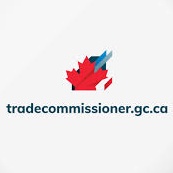
Grant and FundingOpenClosing Soon
CanExport GAC-Led Delegations
Trade Commissioner Service (TCS)Cost-sharing support for SMEs joining GAC-led trade delegations
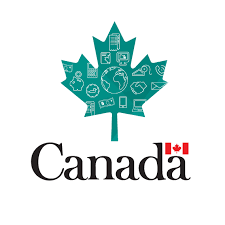
Tax CreditsOpen
Clean Technology Manufacturing (CTM) Investment Tax Credit (ITC)
Canada Revenue Agency (CRA)Incentivize Canadian companies to invest in clean technology

Tax CreditsOpen
Clean Technology (CT) Investment Tax Credit (ITC)
Natural Resources Canada (NRCan)Offer up to 30% refundable credit for capital investments in new clean technologies in Canada
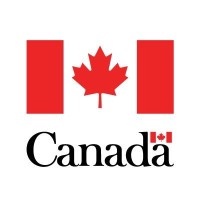
Grant and FundingClosed
Green Industrial Facilities and Manufacturing Program (GIFMP) — Industrial Facility Track
Natural Resources Canada (NRCan)Support for the implementation of energy efficiency and energy management solutions

Grant and FundingOpen
Incentives for medium and heavy-duty zero-emission vehicles (iMHZEV) Program
Transport CanadaIncentives to purchase or lease medium- heavy-duty ZEVs
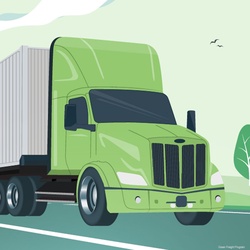
Grant and FundingOpen
Green Freight Program — Assess and Retrofit
Natural Resources Canada (NRCan)Supports energy-efficient retrofits for Canadian freight fleets
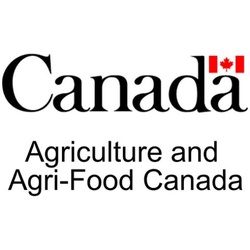
Researchers And FacilitiesPartnering and CollaborationGrant and FundingClosed
AgriScience Program – Clusters
Agriculture and Agri-Food Canada (AAFC)Funding for agricultural research and innovation collaboration
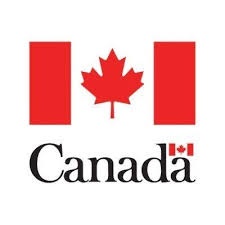
Grant and FundingClosed
Canada Public Transit Fund
Housing, Infrastructure and Communities CanadaSupports long-term public transit and active transportation infrastructure development

Grant and FundingClosed
Creative Export Canada (CEC) — Export-Ready Stream
Canadian HeritageFunding for Canadian creative industry exports
Sign up to our platform to access the Contributions in support of Indigenous Economic Development information sheet for free
Get access to 4,000+ programs, practical guides, personalized alerts, and an AI assistant to support your grant applications.